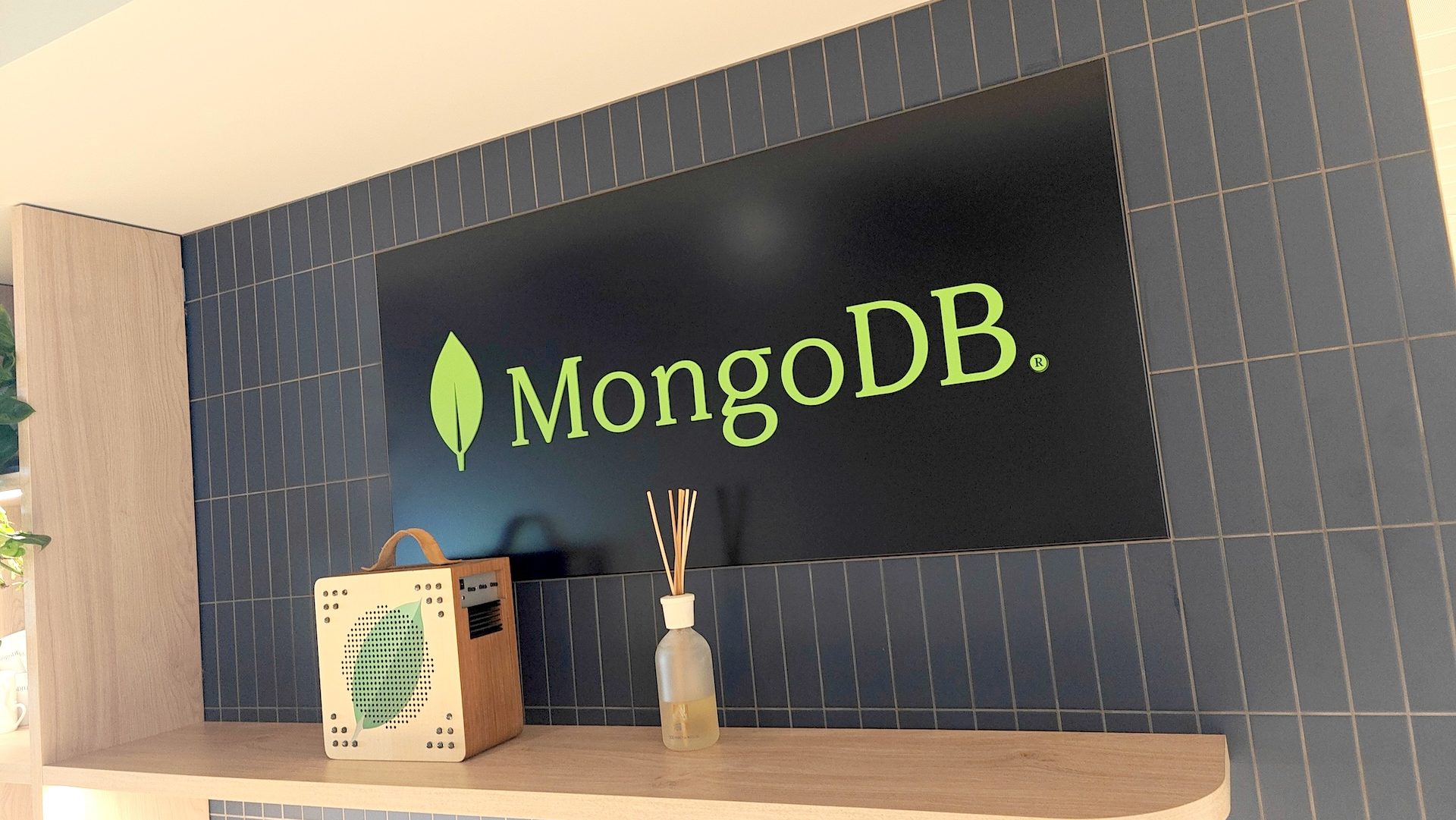MongoDB CEO Dev Ittycheria talks AI hype and the database evolution as he crosses 10-year mark
9 min readRather a lot has occurred since Dev Ittycheria took the reins at MongoDB, the $26 billion database firm he’s led as president and CEO since September 2014. Ittycheria has taken MongoDB to the cloud, steered it by way of an IPO, overseen its transition from open supply, launched a enterprise capital arm, and grown the client base from a number of hundred to one thing approaching 50,000.
“When I joined the company, it wasn’t clear if people would trust us to be a truly mission-critical technology,” Ittycheria informed TechCrunch. “When I joined, it was doing roughly $30 million in revenue; now we’re doing close to $2 billion.”
It hasn’t all been peaches and cream, although. Five months in the past, MongoDB was hit by a safety breach, which, whereas comparatively contained, did momentarily danger its repute in an business the place repute is paramount.
Throw into the combination the whirlwind AI revolution that has engulfed nearly each business, and there was a lot to debate when TechCrunch sat down with Ittycheria at MongoDB’s new London workplace, which opened in Blackfriars final yr.

MongoDB’s London workplace. Image Credits: Paul Sawers / TechCrunch
Vector’s embrace
Databases have come a great distance since IBM and Oracle first popularized relational databases greater than half a century in the past. The web’s rise created demand for versatile, scalable, and cost-effective information storage and processing, paving the best way for companies equivalent to MongoDB to thrive.
Founded in 2007 by a trio of veterans hailing from on-line adtech firm DoubleClick (which Google acquired for $3.1 billion), MongoDB was initially referred to as 10Gen till a rebrand to the title of its flagship product six years later. It has since emerged as one of many preeminent NoSQL databases, serving to corporations retailer and handle giant volumes of information.
Prior to becoming a member of MongoDB, Ittycheria based and exited a server automation firm referred to as BladeLogic for $900 million in 2008, and went on to serve in numerous board member and investor roles (together with a 16-month stint at Greylock) earlier than becoming a member of MongoDB as president and CEO approaching for 10 years in the past now. Ittycheria changed Max Schireson, who stepped down for household causes after simply 18 months within the function.
Built on a document-oriented mannequin, MongoDB has grown off the again of the explosion in cellular and internet functions the place versatile, dynamic information constructions are at play. The present synthetic intelligence wave is driving an analogous shift, with vector databases the recent new factor on the town.
Like NoSQL, vector databases additionally concentrate on unstructured information sorts (e.g., photographs, movies, social media posts), however are notably effectively suited to giant language fashions (LLMs) and generative AI. This is as a result of method they retailer and course of information within the type of vector embeddings, which convert information into numerical representations that seize relationships between completely different information factors by storing them spatially by relevance. This makes it simpler to retrieve semantically comparable information and permits AI to raised perceive context and semantics inside conversations.
While a slew of devoted vector database startups have emerged these previous few years, the incumbents have additionally began embracing vector, together with Elastic, Redis, OpenSearch, Cassandra, and Oracle. Cloud hyperscalers, together with Microsoft, Amazon, and Google have additionally ramped up assist for vector search.
MongoDB, for its half, launched vector search to its flagship database-as-a-service product Atlas final June, an indication that the corporate was making ready for the oncoming AI tsunami. This mimics different historic traits the place single-function databases emerge (equivalent to time-series) with some utility as stand-alone options however which may even be higher built-in into a bigger multi-purpose database stack. This is exactly why MongoDB launched assist for time-series databases a number of years again, and why it’s doing the identical with vector.
“A lot of these companies are features masking as products,” Ittycheria stated of the brand new wave of devoted vector merchandise. “We built that into the platform, and that’s the value — rather using some stand-alone vector database and then your OLTP (online transaction processing) database and then your search database, we can combine all three things into one platform that makes the life of a developer and architect so much easier.”
The concept is that database suppliers that undertake a multipronged strategy can mix all the information in a single place, making life simpler for builders to work with.
“There’s probably like 17 different types of databases, and probably about 300 vendors,” Ittycheria stated. “There’s no customer on this planet that wants to have 17 different databases. The complexity that creates, and the cost of learning, supporting and managing those different technologies becomes overwhelming. It also inhibits innovation, because it creates this tax of complexity.”

MongoDB’s Dev Ittycheria. Image Credits: MongoDB
Too a lot hype
Despite the preparation, Ittycheria reckons there may be an excessive amount of hype round AI — for now, not less than.
“My life has not been transformed by AI,” he stated. “Yes, maybe I can write an email better through all those assistants, but it’s not fundamentally transformed my life. Whereas the internet has completely transformed my life.”
The idea is that regardless of the hullaballoo, it can take time for AI to seep into our on a regular basis lives — and when it does, will probably be by way of functions integrating AI, and companies constructing on it.
“I think with the adoption of any new technology, we see value accrue at the bottom layer first,” Ittycheria stated. “Obviously, Nvidia is making money hand over fist, and OpenAI has been the most talked about company since they launched ChatGPT. But the real value will come when people build applications on top of those technologies. And that’s the business we’re in — we’re in the business of helping people build applications.”
For now, it’s all about “simple apps,” as Ittycheria places it. This contains chatbots for customer support, one thing that MongoDB itself is doing internally with CoachGTM, powered by MongoDB’s vector search, to carry its gross sales and buyer groups immediate data about their merchandise. In some methods, we’re presently within the “calculator apps” stage that the iPhone discovered itself in practically 20 years in the past when the idea of the App Store hit the lots.
“The real sophisticated (AI) apps will be using real-time data, being able to make real-time decisions on real-time events,” Ittycheria stated. “Maybe something’s happening in the stock market, maybe it’s time to buy or sell, or it’s time to hedge. I think that’s where we will start seeing much more sophisticated apps, where you can embed real-time data along with all the reasoning.”
The SaaS path
One of the most important developments throughout Ittycheria’s tenure has been the transition from a self-deployed mannequin, the place prospects host MongoDB themselves and the corporate sells them options and providers. With the launch of Atlas in 2016, MongoDB launched into the acquainted SaaS path the place corporations cost for eradicating all of the complexities of self-hosting. At the time of its IPO the next yr, Atlas represented 2% of MongoDB’s income — at present that determine sits at practically 70%.
“It’s grown very quickly, and we’ve really built that business as a public company,” Ittycheria stated. “What the popularity of Atlas showed was that people are comfortable consuming infrastructure as a service. What that allows them to do is delegate what they consider ‘non-strategic functions,’ like provisioning, configuring and managing MongoDB. So they can focus on building applications that are really transforming their business.”
Another main growth got here when, a yr after going public, MongoDB moved away from an open supply AGPL license to a source-available SSPL (server facet public license). In some methods, this was the bellwether of what was to return, with numerous infrastructure corporations happening to desert their open supply credentials to stop the cloud giants (e.g., Amazon) from promoting their very own model of the service with out giving again.
“We feel very happy about it (the license change),” Ittycheria stated. “The reality is that while it was open source, 99.9% of the development is done by our own people — it’s not like communities contributing code. It’s not some simple, trivial application — it’s very complex code, and we need to hire senior, talented people who cost a lot of money. We didn’t think it was fair for us to spend all this money to build this product, then someone takes that free product, monetizes it, and not give us anything back. It was quite controversial in 2018, but looking back, our business has only grown faster.”
And grown it has. As with nearly each tech firm, MongoDB’s valuation soared in the course of the pandemic, peaking at an all-time excessive of $39 billion in late 2021, earlier than plummeting south of $10 billion inside a yr — roughly the identical as its pre-pandemic determine.
However, MongoDB’s shares have been in ascendency within the 18 months since, hitting $35 billion simply a few months in the past, earlier than dropping once more to round $26 billion at present — such is the unstable nature of the inventory markets. But given the corporate’s comparatively modest $1.8 billion valuation on the finish of its first day of buying and selling in 2017, MongoDB has carried out pretty effectively for public market buyers.

Dev Ittycheria with MongoDB colleagues at its 2017 IPO. Image Credits: MongoDB
Four months in the past, although, MongoDB revealed a knowledge breach that uncovered “some customer account metadata and contact information” — it concerned a phishing assault by way of a third-party enterprise device (Ittycheria wouldn’t verify which). This brought on its shares to drop 3%, however within the months that adopted, MongoDB’s valuation surged again to a two-year excessive. This highlighted how little impression the breach had on affairs on the firm, definitely in comparison with high-profile information breaches on the likes of Equifax and Target, which hit the companies exhausting and compelled senior govt departures.
While MongoDB’s cybersecurity incident was considerably smaller in scope, what stood out was how shortly the entire thing went away — it was reported in a number of retailers (together with TechCrunch), however the story disappeared into the foggy ruins of time simply as shortly because it arrived.
“Part of the reason is that we were very transparent,” Ittycheria stated. “The last thing you want to do is hide information and appear like you’re misrepresenting information. We have lots of banks who put a lot of very sensitive information in our data platform; we’ve lots of other companies that have a lot of sensitive information. So for us, it’s really about making sure that our architecture is robust and sound. And this really forced us to double down. I would never claim that we’re never gonna get hacked again, but we’re doing everything in our power to ensure that it doesn’t.”
Nothing ventured
It’s commonplace for the most important tech corporations to launch their very own funding automobiles, as we’ve seen by way of the years with Alphabet (which has a number of funding offshoots), Microsoft, Amazon, and Salesforce all ingratiating themselves with the startup fraternity. But a more moderen wave of enterprise company enterprise companies have entered the fray, too, together with Slack, Workday, Twilio, Zoom, HubSpot, and Okta.
In 2022, it was MongoDB’s flip to launch such a fund, and within the two years since, MongoDB Ventures has invested in some eight corporations.
“This is for us to build deeper relationships — we work in an ecosystem that consists of large companies and also small companies,” Ittycheria stated. “Where we see a small company that we think could be interesting to work with, we say, ‘Hey, we want a chance to invest in you,’ so that extra value’s created. We also are the beneficiaries of creating some of that value.”
MongoDB solely has a handful of individuals in its company growth group which can be principally targeted on the enterprise fund, and Ittycheria stresses that MongoDB takes a again seat with its investments. It additionally sometimes invests alongside different VCs, because it did with its inaugural funding in 2021 (predating the formal launch of its fund), when it quietly joined the likes of Insight Partners and Andreessen Horowitz in Apollo GraphQL’s $130 million Series D spherical.
“We always take a minority position, we don’t take a board seat, and we don’t set the terms,” Ittycheria stated. “But the reason startups are interested in us is because they want to leverage the MongoDB brand. We have thousands of people in the field, so they (startups) can leverage our distribution channels.”

